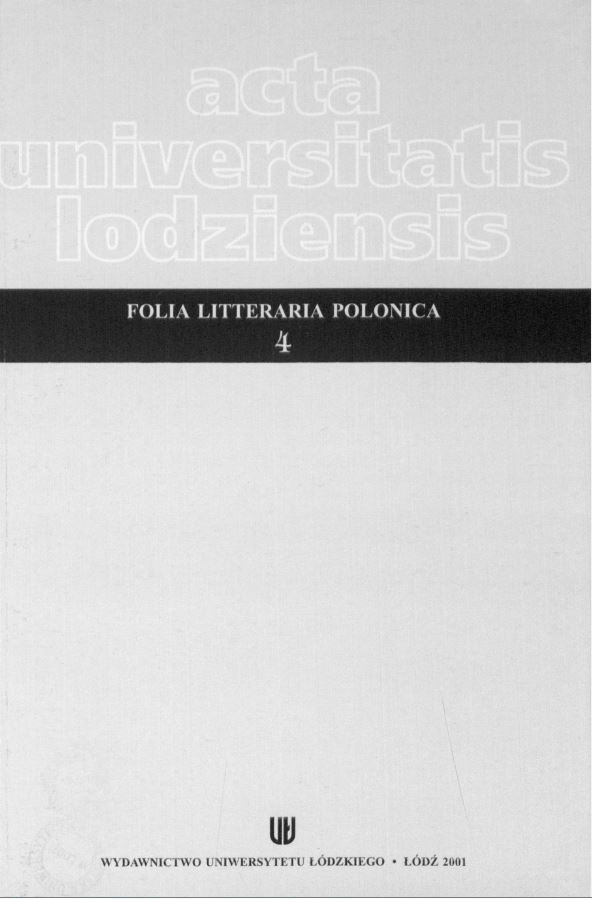Dygat's humour in the language and style of his prose
DOI:
https://doi.org/10.18778/1505-9057.04.16Abstract
Stanisław Dygat’s humour is an integral feature of his prose and the language he uses plays a crucial role in it. Flexible, fluent, abounding with original comparisons, flowing gently and with verve, not tiresome. Dygat feels at ease with Polish; and it shows. Reading Dygat’s novels one has an impression of wandering through unlimited space. This impression is largely due to his creative attitude to language, his skill in using its various means and features, even those from the “ancient” past of literature. Some “ tricks” of Dygat’s prose are largely obsolete in contemporary literature, such as telling names. The writer performs a delicate balancing act between innovative ideas and stylisation or literary allusions; and he does it easily and gracefully.
The text presents humour, the comic and verbal humour on various levels of the novel’s structure. The article starts with recurring narrative features of Dygat’s prose such as individualisation of character’s language; then presents: dialogues, digressions, aphorisms, key words, stylisation and literary allusions, phraseology modifications, telling names, onomatopoeia, situation description, metaphors, comparisons, repetitions and multiplications. The text closes with witty details of narration such as deminutives, augmentatives and witty “epigrams” .
Humour is inextricably interwoven into Dygat’s language, but integral as it is, its role seems superior to other characteristics of his prose. Dygat’s takes advantage of the comic literature tradition and its old ideas. He is a master of parody and stylisation. The great raconteur can focus on each sentence or even word, without sacrificing the verve in dialogues or the dynamism in his description.
Downloads
Downloads
Published
How to Cite
Issue
Section
License

This work is licensed under a Creative Commons Attribution-NonCommercial-NoDerivatives 4.0 International License.











